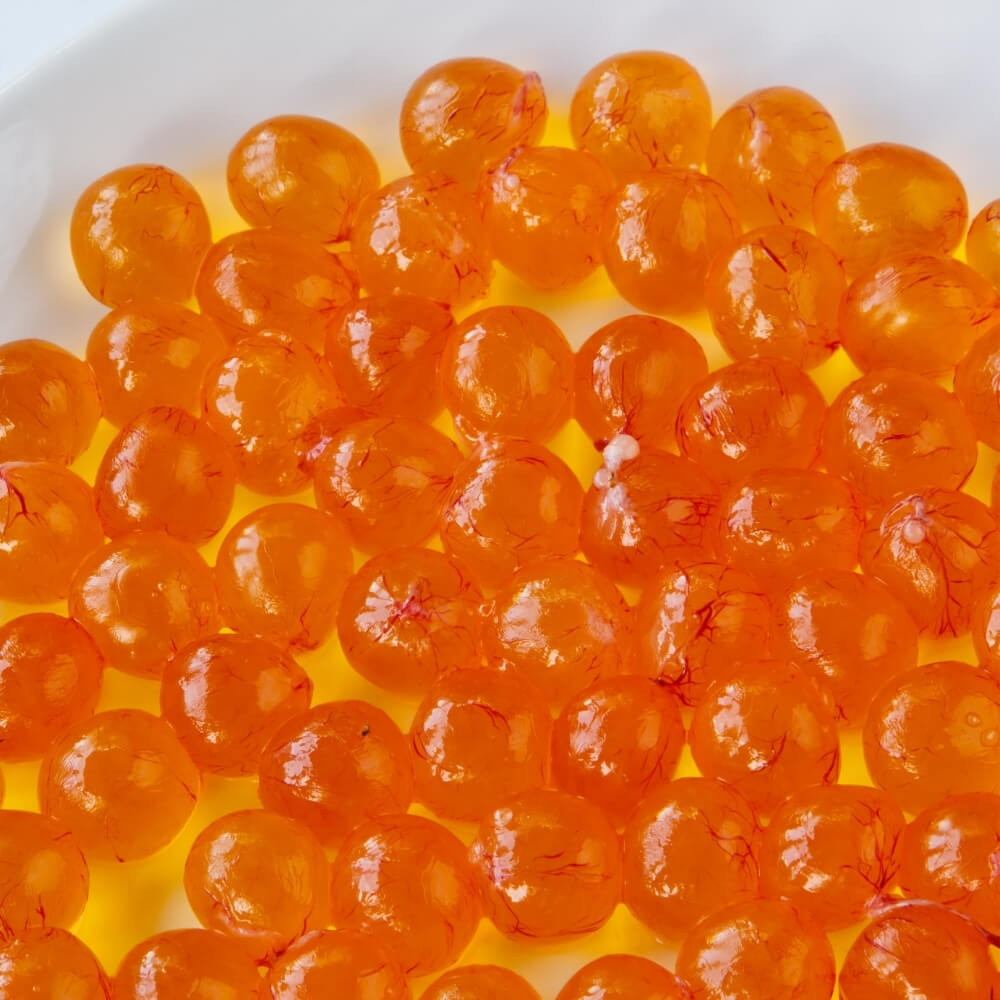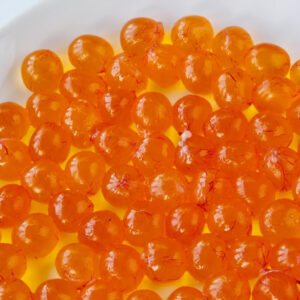Fish eggs are rich in omega-3 fatty acids, eicosapentaenoic, docosahexaenoic acids and vitamin B-12. Omega-3 fatty acids are essential for brain and heart health and reduce inflammation that can lead to chronic disease. Another nutrient that helps the body convert food into energy is vitamin B-12.
The central nervous system, a healthy heart, and DNA synthesis all benefit from vitamin B-12. Fish eggs are also a good source of fat-soluble vitamin D, which works well with omega-3 fatty acids. The choline in fish eggs also promotes the transit of good fats, cholesterol, and cognitive function.
Fish eggs are high in protein but try not to overeat. Fish eggs provide a protein boost; however, the amount depends on the variety. Due to their high sodium and cholesterol content, you should consume fish eggs in moderation. A 1-cup serving of fish eggs has more cholesterol than the daily limit for healthy adults (300 milligrams). A diet heavy in cholesterol increases the risk of heart disease.
Fish eggs are steeped in a salt solution during processing, increasing sodium content. Consuming more sodium than the recommended daily limit of 2,300 milligrams increases the risk of high blood pressure, stroke, and heart disease. There is 117 mg of sodium in a 1-cup serving of fish eggs.
Fish roe is low in carbohydrates and contains no dietary fibre or sugar. These amounts vary depending on the fish eggs you’re consuming.
In fish eggs, there is a limited amount of 3 types of fat: saturated fat (1.46 gm), which is less nutritious because it may contribute to heart disease; polyunsaturated fatty acids or PUFA (2.66 gm), which is healthier because it has a positive effect on the cardiovascular system, and monounsaturated fatty acids or MUFA (1.66 gm), which is supposed to increase HDL cholesterol or good cholesterol.
One tablespoon (16 grams) of fish eggs contains 42 calories, 4 grams of protein, and 3 grams of fat. Approximately 38% of the fish egg calories are from protein and 64% from fat.
The USDA provides the following nutrition value for one hundred grams of fish eggs.
- Energy: 143 kcal
- Protein: 22.3 g
- Fat: 6.42 g
- Carbohydrates: 1.5 g
- Cholesterol: 374 mg
- Calcium: 16 mg
- Vitamin B12: 10 µg
- Phosphorus: 402 mg
- Vitamin A: 299 IU









Reviews
There are no reviews yet.